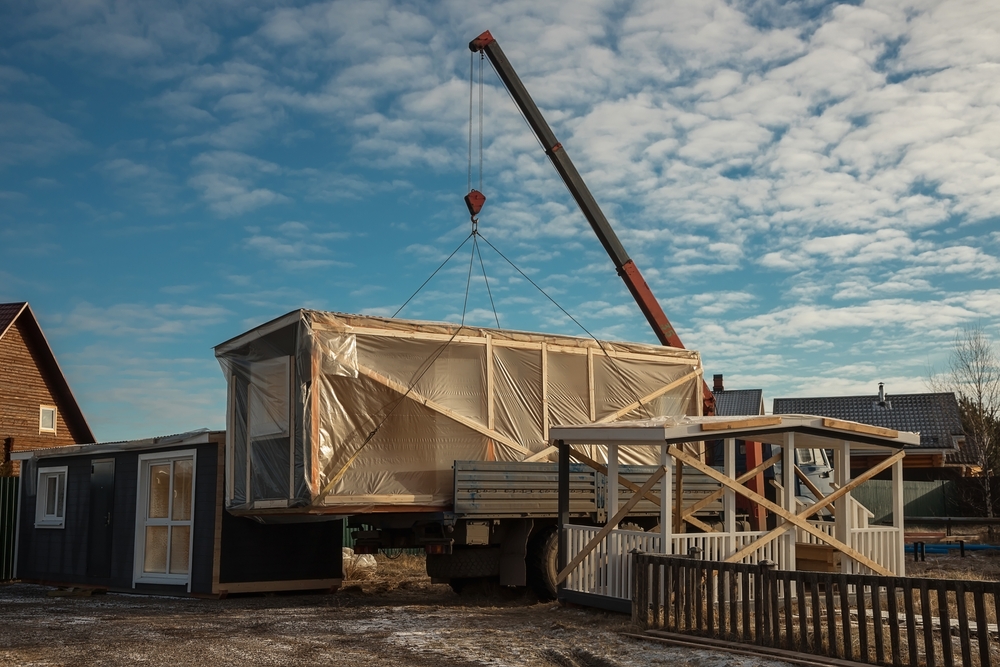Modular construction is revolutionizing the building industry by offering a faster, more efficient, and cost-effective alternative to traditional construction methods. For contractors, adopting modular construction techniques can lead to significant business growth and client satisfaction. This guide will explore the types of modular construction, the benefits, and how contractors can get started with this innovative approach.
Types of Modular Construction
Permanent Modular Construction (PMC)
Permanent Modular Construction (PMC) involves the off-site fabrication of building modules that are then transported and assembled on-site. These modules are designed to be permanent parts of the building structure.
- Benefits of PMC: Reduced construction time, improved quality control, and minimized site disruption.
- PMC Techniques: Permanent Modular Construction
Relocatable Buildings
Relocatable buildings are modular structures designed for temporary use. They can be easily disassembled, transported, and reassembled at different locations, making them ideal for temporary offices, classrooms, and emergency shelters.
- Common Applications of Relocatable Buildings: Temporary offices, classrooms, and emergency shelters.
- Relocatable Building Resources: Relocatable Buildings
Hybrid Modular Construction
Hybrid modular construction combines traditional construction methods with modular techniques. This approach allows for greater flexibility and customization while still benefiting from the efficiencies of modular construction.
- Benefits for Flexibility and Cost Savings: Combines the best of both worlds, offering customization and efficiency.
- Hybrid Modular Construction Resources: Hybrid Modular Construction
Certification and Training for Modular Construction
MBI Certification
The Modular Building Institute (MBI) offers certification for professionals in the modular construction industry. This certification demonstrates expertise in modular construction techniques and adherence to industry standards.
- Importance of MBI Certification: Enhances credibility, increases job opportunities, and ensures adherence to best practices.
- MBI Certification Requirements and Application: MBI Certification
Training Programs
Various training programs and courses are available to help contractors gain the necessary skills for modular construction. These programs cover topics such as system design, installation techniques, and safety practices.
- Recommended Training Programs: Online courses, in-person workshops, and hands-on training sessions.
- Modular Construction Training Resources: Modular Construction Training
Market Demand and Opportunities
Residential Market
The residential market for modular construction is growing as homeowners seek faster, more affordable building solutions. Offering modular construction services can attract clients looking for modern, efficient homes.
- Benefits for Homeowners and Contractors: Reduced construction time, lower costs, and high-quality builds.
- Residential Modular Construction Resources: Residential Modular Construction
Commercial Market
The commercial market also presents significant opportunities for modular construction. Businesses are increasingly adopting these techniques to reduce construction time and cost while maintaining high standards of quality.
- Examples of Successful Commercial Modular Projects: Office buildings, hotels, and retail spaces.
- Commercial Modular Construction Resources: Commercial Modular Construction
How to Get Started with Modular Construction
Step 1: Assessing the Site
Conducting a thorough site assessment is crucial for successful modular construction. This involves evaluating the building site, understanding the logistics of transporting modules, and ensuring the site is prepared for assembly.
- Site Assessment Tools and Resources: Modular Site Assessment
Step 2: Planning and Design
Proper planning and design are essential for optimizing modular construction projects. Contractors should work with clients to develop a customized modular solution that meets their needs and budget.
- Examples of Successful Modular Designs: Case studies and design guides can provide valuable insights into effective modular solutions.
- Modular Design Resources: Modular Design
Step 3: Installation and Maintenance
Executing the installation involves transporting the modules to the site, assembling them, and ensuring compliance with safety standards. Regular maintenance is also important to ensure the long-term performance of the building.
- Importance of Regular Maintenance and Inspections: Helps identify and address potential issues, ensuring the building operates efficiently.
- Link to Installation Guidelines: Modular Installation
Modular construction offers numerous benefits for both clients and contractors, including reduced construction time, lower costs, and high-quality builds. By obtaining the necessary certification and training, contractors can tap into the growing demand for modular solutions and expand their service offerings. Embracing modular construction can lead to increased business growth, customer satisfaction, and a positive impact on the environment.

